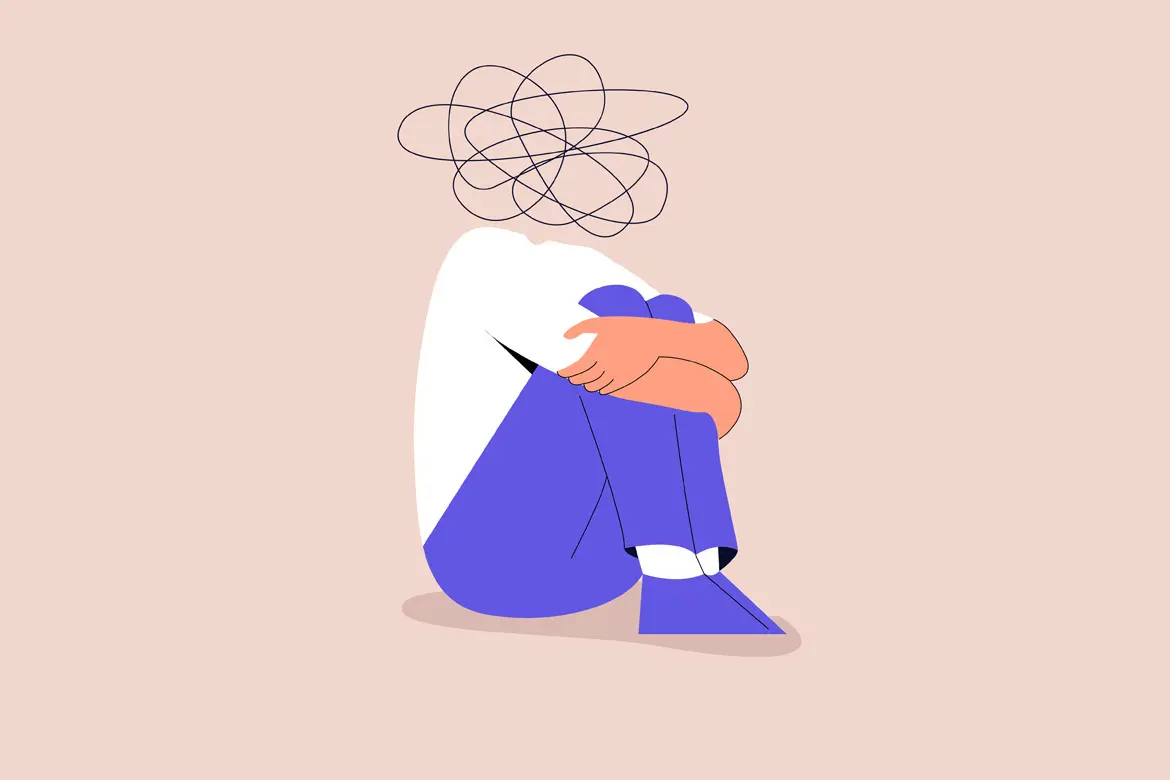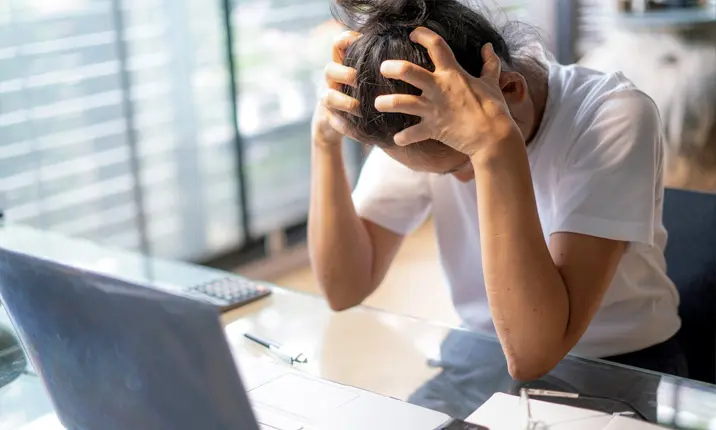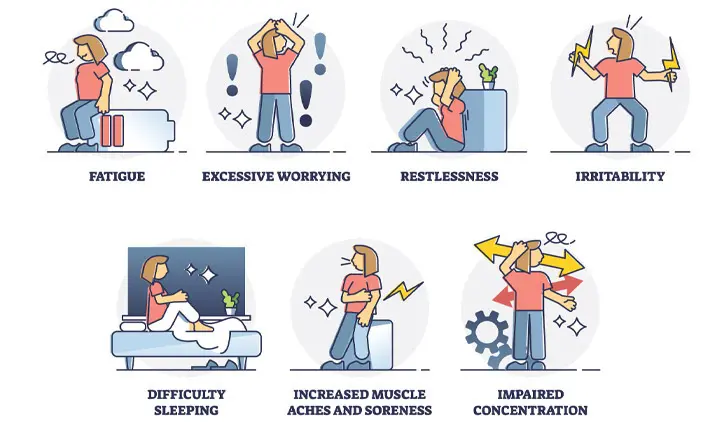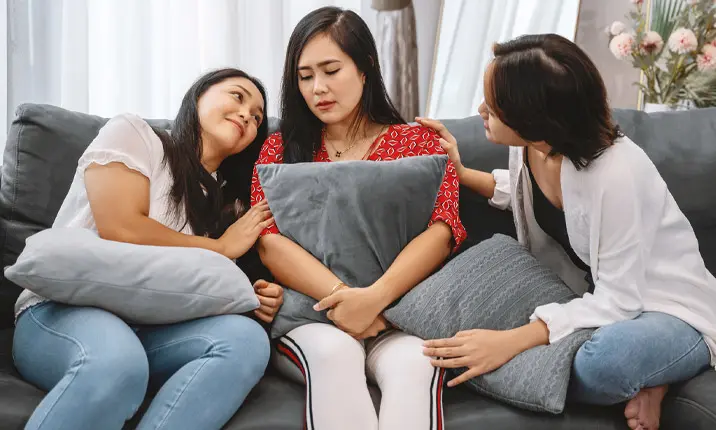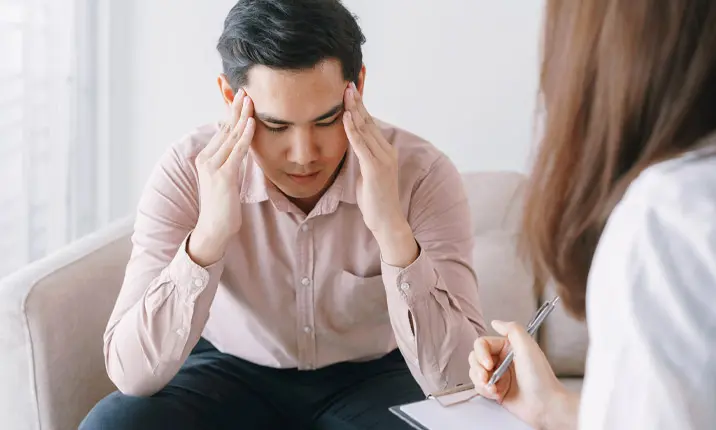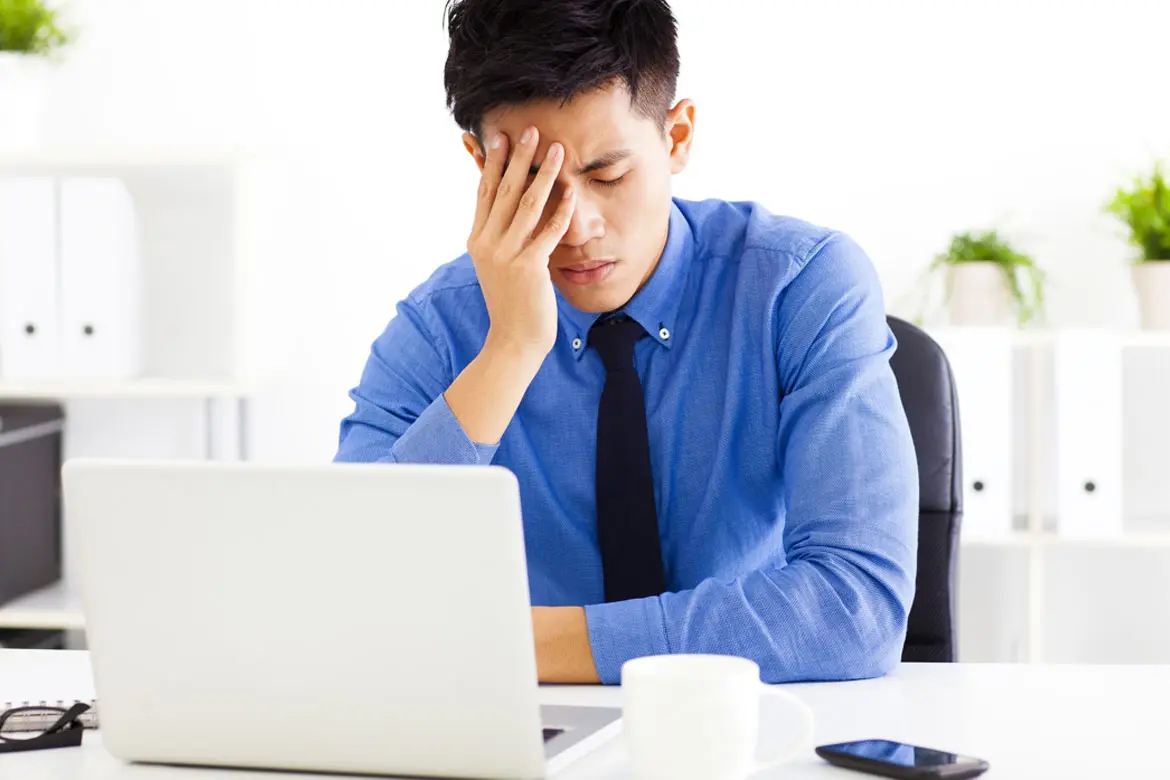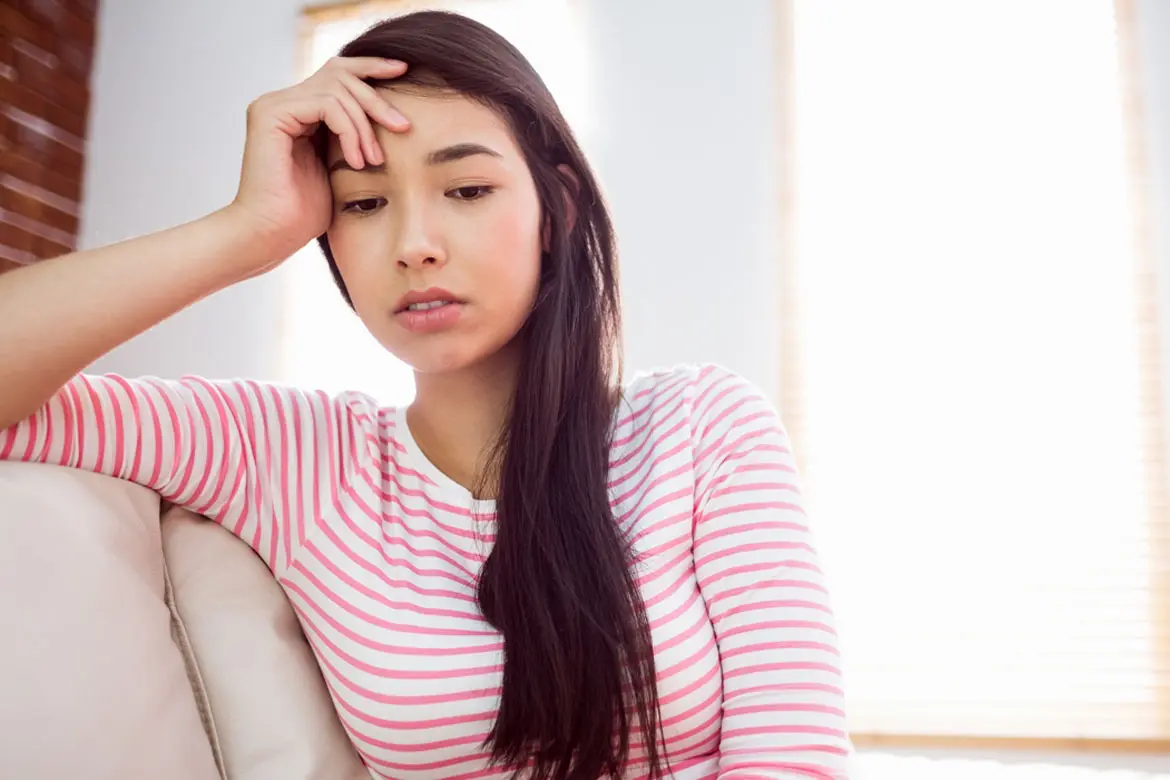According to the World Economic Forum, anxiety is the most prevalent mental health issue globally. The figures are sobering – it's estimated that 275 million people worldwide suffer from anxiety disorders. COVID-19 has only served to exacerbate the problem, causing anxiety and depression to have a 25% increase in prevalence worldwide, according to the World Health Organization.
Chances are, you have faced (the feeling of) anxiety at some point in your life. Tension, worried thoughts, an increased heart rate, and chest pains are some of the feelings associated with anxiety. If only experienced occasionally, anxiety is considered normal.
Anxiety is an appropriate reaction to danger, and it can activate your body's fight-or-flight response that gets triggered when you feel threatened, are under pressure, or are facing a stressful situation (e.g. loss of a job, sitting for an examination, meeting someone for the first time).
This isn't necessarily a bad thing, as a certain amount of anxiety can be helpful. It can allow you to stay focused and alert, get you to work on time, motivate you to study diligently for exams, and even keep you out of dangerous situations.
When is anxiety a problem?
Anxiety becomes a problem when it crosses from being an occasional emotion that someone feels to become a likely anxiety disorder. The intensity of symptoms as well as an individual's ability to cope determine the difference between daily stresses or temporary anxiety from anxiety disorders.
What is an anxiety disorder?
Anxiety disorders are a group of related conditions rather than a single disorder, which means that symptoms may vary widely between individuals. It's possible to have more than one anxiety disorder, with a common thread running through them – fear or worry disproportionate to the situation at hand.
In an anxiety disorder, anxiety no longer serves as a healthy emotion but becomes overwhelming to deal with. This can sometimes lead to constant fear or worry, causing the individual to overreact or react impulsively to situations. This may interfere with their relationships and daily life in a variety of ways. Someone suffering from an anxiety disorder might even avoid certain situations and/or places, depending on what triggers their feelings of anxiety.
In addition, people with anxiety disorders usually have recurring intrusive thoughts or concerns that can affect their concentration and sleep. They may also have physical symptoms such as sweating, breathlessness, shaking and chest pain.
What are the symptoms of anxiety disorders?
Often, there is a mix of symptoms in those suffering from an anxiety disorder, and they can show up as young as childhood and continue long into adulthood if left untreated.
Symptoms of anxiety disorders vary and include:
- Frequently or constantly feeling restless, irritable or tense
- Getting tired easily and having difficulty concentrating or feeling forgetful
- Having difficulty getting to sleep or staying asleep
- Having fears or worries you know are irrational but are pervasive and interfere with your daily life
- Avoiding situations, places or activities because they cause anxiety for you
What are the different types of anxiety disorders?
There are many types of anxiety disorders, and some may experience more than one at a time. A few common ones include:
- Generalised anxiety disorder: This is a chronic condition in which, for most days over a period of at least 6 months, an individual might feel excessively worried about a wide range of situations and issues rather than one specific event.
- Social anxiety disorder: Someone with a social anxiety disorder might feel extremely stressed and may experience muscle tension in social situations. They would also likely feel this way when the spotlight is on them during conversations and when they are called to speak publicly. A fear of being negatively perceived or judged by others, embarrassment, and self-consciousness are some triggers of anxiety disorder.
- Phobias: A phobia can be a particular animal, place, object, or situation that causes extreme or irrational fear. In some cases, panic attacks can ensue when someone with a phobia is exposed to it.
- Panic disorder: This occurs when an individual has recurring panic attacks that happen suddenly or due to specific triggers. A panic attack is an episode of overwhelming fear that is accompanied by symptoms similar to a heart attack, such as palpitations and breathlessness. They usually occur for 10 – 30 minutes and can make the person going through feel a loss of control or as if they are about to die.
- Obsessive-compulsive disorder (OCD): This is a condition characterised by intrusive thoughts or behaviours that seem impossible to stop. With OCD, you may feel troubled by obsessions, such as a recurring worry that you forgot to turn off the gas or that someone dear to you may be hurt. You may also suffer from uncontrollable compulsions, such as washing your hands repeatedly. There are many variations of OCD, but at the core of them is anxiety-inducing doubt. In fact, those suffering from OCD might even doubt they have OCD, preventing them from seeking treatment or dropping out of treatment before it takes effect.
What are the effects of anxiety disorders?
Those suffering from anxiety disorders experience prolonged periods of stress. This results in their fight-or-flight response staying activated, causing cortisol, the primary stress hormone, to be consistently produced. Cortisol increases sugar in the bloodstream, and over time, this can lead to diabetes. Anxiety also leads to elevated blood pressure, which can result in coronary heart disease.
Prolonged anxiety can also cause someone to make poor lifestyle choices. For one, stress can lead someone to seek comfort in food, resulting in an increased intake of foods high in sugar and fat, leading to weight gain, diabetes, and obesity. In extreme cases, someone might even turn to drugs, alcohol, and smoking, which ironically increase the feelings of anxiety once their effects wear off, leading to addiction.
Overall, someone who suffers from an anxiety disorder will experience a drop in the quality of their life. Anxiety can feel like an unending cycle of fear or helplessness. Usual daily activities and even responsibilities such as work or school can be severely affected by anxiety. This can lead to other mental health issues such as depression and, in some cases, suicidal thinking.
If you or a loved one is suffering from anxiety, take comfort in knowing that there is help available.
How can I manage anxiety?
People who go through anxiety disorders can sometimes feel alone. They may be unwilling to speak about their issues for fear of judgement from others. The stigma associated with anxiety disorders, and the social isolation resulting from COVID-19 restrictions, have caused reduced opportunities for those suffering to speak up.
The first step lies in realising you need help. There is the self-help route, and there is the professional help route. The path you choose is up to you, and you can even choose a combination of the two routes.
1) Self-help for anxiety
- Peer support: Loneliness and isolation can trigger or worsen anxiety. Meet up with friends, join a self-help or support group, or share your worries and concerns with someone you trust, and you might find your problems less overwhelming.
- Stress management: If you feel you are juggling more than you can manage, look at your responsibilities and determine which you can give up, turn down, or delegate to others for your own mental well-being.
- Meditation and other relaxation techniques: When practised regularly, techniques such as mindfulness meditation, progressive muscle relaxation, and deep breathing can help reduce anxiety and stress, relieve insomnia and even some types of chronic pain while increasing feelings of relaxation and improving emotional well-being and sleep.
- Regular exercise: Exercise in almost any form can act as a stress reliever. Being active can boost your feel-good endorphins and has stress-busting benefits, including improved sleep, self-confidence, and shedding daily tensions. You can even practise walking meditation.
- Get enough sleep: A lack of sleep can exacerbate anxious thoughts and feelings, so try to get 7 – 9 hours of quality sleep a night. Keep a daily schedule for bedtime and waking up, including on the weekends. Ensure your bedroom environment is comfortable so that you can relax. Avoid the use of electronics such as TVs, computers, and smartphones in the bedroom, as the blue light emitted can cause you to fall asleep later.
- Reduce or abstain from certain substances: These include substances such as caffeine, alcohol, and nicotine. Although deceptively relaxing, they can lead to higher levels of anxiety. You should speak to a doctor for help quitting these unhealthy habits if you should require it.
2) Professional help for anxiety
- Psychotherapy: Psychologists may use cognitive behavioural therapy (CBT) tools to teach people how to challenge distorted or unhelpful thoughts and retrain their brains on the interactions between their thoughts, feelings and actions. On the other hand, exposure therapy trains people to break the pattern of fear and avoidance by gradually exposing a person to uncomfortable scenarios or things under the guidance of a trusted person or therapist.
- Medication: Benzodiazepines are short-acting and can be taken as needed when anxiety spikes. Some antidepressants, such as selective serotonin reuptake inhibitors (SSRIs), and Monoamine Oxidase Inhibitors (MAOIs), can help relieve anxiety when taken regularly.
If you feel like you might want to seek professional help, consider visiting a general practitioner (GP), and they will be able to guide you in the right direction.
You're not alone
While anxiety can make you feel isolated and alone in your struggle, remember that it's not true. There are a variety of avenues available for you to seek help and treatment, and the first step is for you to reach out for help. If you are concerned, you are encouraged to visit your doctor as soon as possible.
If necessary, anxiety can be overcome using professional help techniques, such as therapy and medication. Coupled with love, support, and other self-help techniques, you will eventually overcome anxiety and live an abundant life. Remember, you are not alone.
Your family physician can help manage anxiety
The Chronic Disease Management Programme (CDMP) was first introduced in October 2006 and now covers 20 conditions, including anxiety. With CDMP, the cost of managing chronic conditions is made easier and reduces out-of-pocket healthcare cost for people seeking treatment.
Speak to your doctor and locate the nearest Parkway Shenton clinic to you here.
